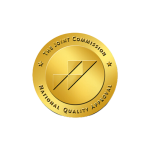What You'll Learn:
- Exploring how addiction impacts relationships.
- Understanding the dynamics of substance abuse in intimate partnerships.
- Strategies for managing relationships affected by addiction.
- The role of communication and professional help in healing.
Navigating the Complexities of Addiction and Relationships
Navigating the complexities of addiction within the context of relationships presents a multifaceted challenge, deeply affecting both the individual struggling with addiction and their loved ones. Addiction can significantly strain relationships, altering dynamics through issues of trust, communication, and emotional well-being. It often places partners, family members, and friends in the difficult position of balancing support for the individual with the need to maintain healthy boundaries.
The emotional toll on relationships can be profound, marked by feelings of frustration, helplessness, and sadness. However, these challenges also open avenues for growth, understanding, and deeper connections. Navigating these complexities involves open communication, empathy, and often, professional guidance through therapy or support groups.
For the person in recovery, rebuilding and maintaining healthy relationships is a crucial part of the healing process, providing both a support system and a sense of accountability. For loved ones, understanding addiction as a disease and learning how to support without enabling them are key steps in sustaining the relationship. Successfully navigating these complexities can lead to strengthened bonds, mutual respect, and a shared commitment to recovery and well-being.
The Impact of Addiction on Intimate Relationships
The impact of addiction on intimate relationships can be profound and far-reaching, affecting the very foundation of these bonds. Addiction often introduces elements of mistrust, communication breakdowns, and emotional volatility into a relationship, significantly altering the dynamics between partners. The non-addicted partner may experience feelings of neglect, anger, or betrayal, while the person struggling with addiction may feel guilt, shame, and frustration over their inability to quit.
This can create a vicious cycle of conflict, misunderstanding, and emotional distance. Intimate relationships may also bear the burden of financial strain, legal issues, or health problems associated with addiction. However, these challenges also present opportunities for deep, transformative healing. Addressing addiction within the context of an intimate relationship requires a concerted effort from both partners – involving open dialogue, empathy, and often professional support through counseling or therapy. The journey through recovery can lead to a renewed understanding and strengthening of the relationship, provided both partners are committed to honesty, support, and the mutual goal of healing and growth.
Communication: A Vital Tool in Repairing Relationships
Effective communication stands as a vital tool in the journey of repairing and strengthening relationships, especially those strained by challenges like misunderstanding, conflict, or the repercussions of addiction. It involves more than just the exchange of words; it encompasses active listening, empathy, and the expression of thoughts and feelings in a respectful and honest manner.
Open and transparent communication helps to bridge gaps of misunderstanding, allowing all parties to express their perspectives and concerns. It creates a safe space for vulnerability, where feelings of hurt, disappointment, or frustration can be shared without fear of judgment. This process is essential in rebuilding trust and understanding, elements that are often eroded in strained relationships. Through consistent and constructive communication, individuals can work through conflicts, clarify misunderstandings, and develop stronger emotional connections.
Moreover, it paves the way for collaborative problem-solving and mutual support, fostering a more resilient and fulfilling relationship. In essence, mastering the art of communication is key to healing and revitalizing relationships, transforming challenges into opportunities for growth and deeper connection.
Seeking Professional Help
Seeking professional help marks a crucial and brave step on the path to recovery, signifying a commitment to personal health and well-being. This decision often comes at a point where the challenges of addiction, mental health issues, or relationship struggles have surpassed what can be managed alone or with the support of loved ones.
Professional help can take various forms, including therapy, counseling, rehabilitation programs, or medical treatment, each offering expert guidance and support tailored to individual needs. Engaging with professionals provides access to specialized knowledge and techniques, creating a structured and safe environment for healing and growth.
It allows for a deeper exploration of the root causes of issues, equipping individuals with effective strategies for managing their conditions and coping with life’s challenges. This step is not just about overcoming immediate problems; it's about building a foundation for long-term resilience and health. Seeking professional help is an act of strength, showing a readiness to embark on a transformative journey towards a more fulfilling and balanced life.
Building a Support System
Building a support system is a critical element in fostering resilience and well-being, particularly in times of challenge or personal growth. This system comprises individuals who provide emotional, psychological, and sometimes physical support. It often includes family members, friends, therapists, support groups, and mentors who offer understanding, encouragement, and guidance.
Establishing a strong support system involves actively seeking and nurturing relationships with those who are empathetic, trustworthy, and supportive of your goals and well-being. It's about creating a network of people who can be relied upon for a listening ear, sound advice, or a comforting presence. A robust support system provides a sense of belonging and community, reducing feelings of isolation and loneliness.
It also plays a crucial role in navigating life's challenges, offering diverse perspectives and experiences that can aid in problem-solving and decision-making. Additionally, being part of such a system is reciprocal, as offering support to others can enhance one's sense of purpose and fulfillment. Building and maintaining a strong support system is not just beneficial for overcoming immediate challenges, but it is also a cornerstone for sustained mental and emotional health.
Taking Responsibility and Making Amends
Taking responsibility and making amends in a relationship is a crucial step towards healing and rebuilding trust. This process begins with acknowledging one’s own mistakes or hurtful actions and understanding their impact on the other person. It requires a genuine sense of remorse and the humility to admit wrongdoing, without excuses or deflection.
Making amends goes beyond a simple apology; it involves a sincere effort to rectify the harm caused and a commitment to change behaviors that led to the issue. This may include open communication about the underlying causes of the behavior, seeking professional help if necessary, and demonstrating through consistent actions a dedication to improving the relationship.
Making amends is not just about resolving a past mistake, but also about fostering a healthier, more honest, and respectful dynamic moving forward. This process can be challenging and requires patience and empathy from both parties, but it is essential for healing and strengthening the bonds of trust and intimacy in a relationship.
Self-Care and Setting Boundaries
By prioritizing self-care and setting boundaries, you can create a solid foundation for a happier, healthier, and more fulfilling life. We're here to guide you on this path of self-discovery and empowerment, offering insights and practical tips to help you embrace these essential elements of self-compassion and personal growth. Let's explore self-care and setting boundaries as keys to unlocking a brighter and more balanced future.
Celebrating Recovery Milestones Together
Recovery is a journey filled with ups and downs, and celebrating milestones along the way is a powerful way to acknowledge progress and build a strong support network. These celebrations not only offer a chance to reflect on the positive changes but also provide inspiration and motivation for the road ahead.
We'll share ideas and strategies for commemorating these moments in a meaningful and supportive way, creating a sense of unity and shared achievement. Let's embrace the beauty of celebrating recovery milestones together and continue to thrive on this path towards a healthier, happier life.
American Recovery Center Can Help Mend Broken Relationships
The intersection of addiction and relationships is complex, but with the right tools and support, it's possible to navigate these challenges and build stronger, healthier connections. If you're struggling with addiction and its impact on your relationships, American Recovery is here to help. Contact us at 866-484-2502 for support in your journey towards healing both yourself and your relationships.
Understanding the dynamics of addiction and relationships is crucial for healing and growth. Whether it's dealing with the aftermath of how addiction affects relationships or learning to celebrate recovery milestones, the journey is about mutual understanding, support, and commitment to healing. Remember, at American Recovery, we're dedicated to supporting you through every step of this journey, offering the guidance and resources needed to rebuild and strengthen your relationships.


